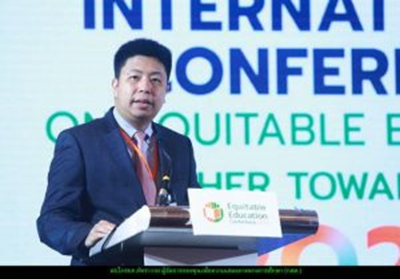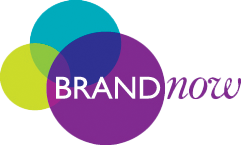Bangkok, Thailand, 1 November 2022 — Regional and international organizations gathered in the Thai capital from 19 to 20 October for the 2nd International Conference on Equitable Education: Together Towards Equity. The Equitable Education Fund (EEF) partnered with the Ministry of Education of Thailand; UNESCO Asia and Pacific Regional Bureau for Education (UNESCO Bangkok); UNICEF East Asia and Pacific Regional Office (UNICEF EAPRO); UNICEF Thailand; Southeast Asian Ministers of Education Organization (SEAMEO); Save the Children (Thailand); and Princess Maha Chakri Award to addressed the numerous disruptions to education.
 EEF Managing Director Dr Kraiyos Patrawart stated at the press conference, ‘Our agenda is urgent. The impact of the pandemic on students has been enormous. COVID-19 caused physical and emotional issues in the younger generation, resulting in developmental and learning loss. It is our goal to revive and bring them back on track. Reviving requires all sectors and stakeholders to come together and aim to address how we can provide education for all. The conference is part of the rehabilitation program addressing long-term investment for a fruitful future. Our collective efforts are to reduce the risk of the lost generation, which can significantly impact Thai society and the world at large’.
EEF Managing Director Dr Kraiyos Patrawart stated at the press conference, ‘Our agenda is urgent. The impact of the pandemic on students has been enormous. COVID-19 caused physical and emotional issues in the younger generation, resulting in developmental and learning loss. It is our goal to revive and bring them back on track. Reviving requires all sectors and stakeholders to come together and aim to address how we can provide education for all. The conference is part of the rehabilitation program addressing long-term investment for a fruitful future. Our collective efforts are to reduce the risk of the lost generation, which can significantly impact Thai society and the world at large’.
The pandemic created a greater gap than ever before in education equality. It is vital to find a solution to overcome the divide, which could derive from a family’s economic standing, or, more generally, a lack of digital skills in the workplace. Access to education for the young generation is a fundamental human right. The outbreak of the COVID-19 pandemic saw many at-risk children dropping out of school, while children in general faced great risk of learning loss. Plans are in the works to reduce education gaps by summarizing lessons learned to reduce the ongoing education crisis.
The partnering organizations have conducted knowledge exchange for the developmental process. Overall, they have agreed to focus on supporting access by all to quality education. To do so requires that every country reopen schools, address learning loss, ensure education continuity for all, and transform curriculum and education systems to be inclusive. Prevent children from exiting the education system, and creating a program that leaves no one behind is one measure to reduce learning loss. Another measure is to foster adult education and encourage lifelong learning, especialy in countries with large populations.
Ms Rika Yorozu, Head of Executive Office and Regional Programme Coordinator of UNESCO Bangkok, said, ‘At the regional level, UNESCO Bangkok will support the implementation of the national statements of commitment in following-up of the APREMC-II and the TES. UNESCO Bangkok will continue to implement initiatives for out-of-school children and young people in the region, including in Thailand. We are committed to serve as the Secretariat of the Equitable Education Alliance, a network of practitioners on equity in education, together with EEF and new partners which may join after this conference’.
SEAMEO Director Dr Ethel Agnes Pascua-Valenzuela, who recently participated in the TES, shared the discussions from the TES and how this relates to the conference, ‘Building on the Youth Declaration, the Vision Statement, and the global initiatives presented during the summit, the TES is an input to our present conference, which seeks to gather concrete solutions from various experiences and diverse contexts with the hope that through these and by working together, we can transform education and make education systems more inclusive and equitable’.
UNICEF Representative for Thailand Kyungsun Kim commented, ‘We need to take urgent action to address the learning loss that occurred during the pandemic. Working and coordinating together is essential now. The world is just beginning to understand the impact of COVID-19 on education. Ten-year-old from poor and middle-income countries are unable to read or understand simple stories. The increase in illiteracy jumped from 53 per cent to 70 per cent. This decreases the child’s ability to develop to their full potential. Consequently, this translates into child exploitation. For a girl, she could be forced to marry prematurely and have a child though she is not ready to be a mother. For a boy, he could be cheap child labor’.
A recent study released by the World Bank in June 2021 in collaboration with UNESCO, UNICEF, USAID, Bill & Melinda Gates Foundation, and UK Foreign Commonwealth and Development Office (FCDO) found that the rate of learning disabilities among children increased significantly during the pandemic. This remains the case even in countries where online learning has been a common tool of instruction. As a result, the current generation of students is likely to lose US$21 trillion in potential earnings, equivalent to 17 per cent of the world’s gross domestic product (GDP) today.
The EEF recently collaborated with UNESCO in hosting the high-level hybrid 5th Meeting of Equitable Education Alliance: Identify Opportunities for EEA Activities, with 10 organizations from 12 countries. To simultaneously address the educational issues, EEF is keen to provide equal access to quality education for all.




